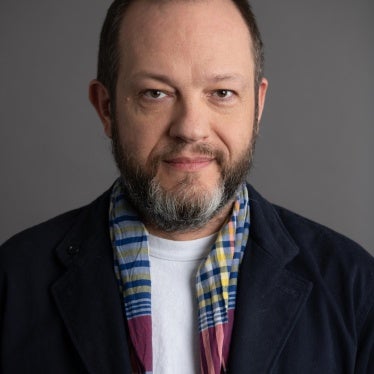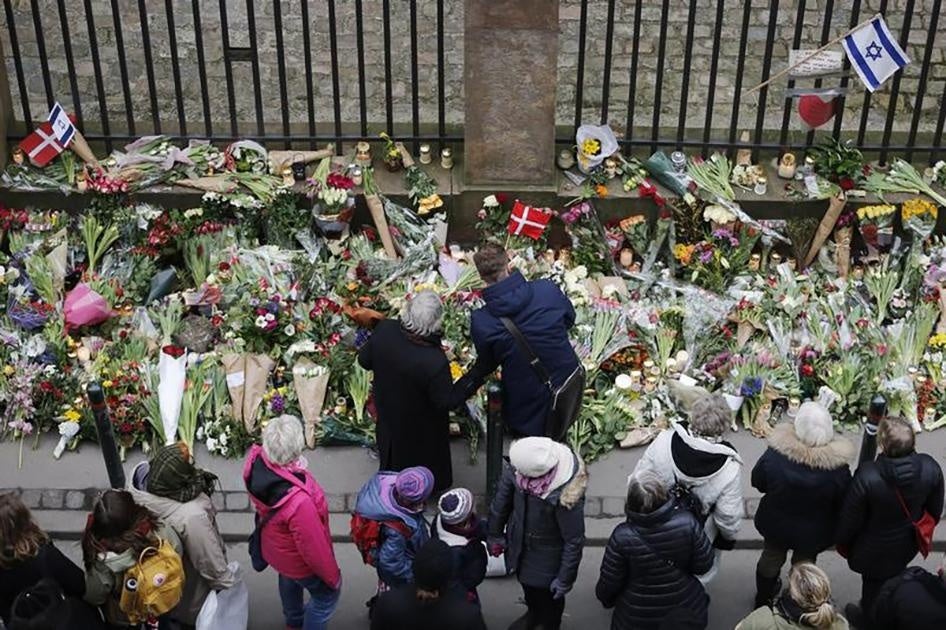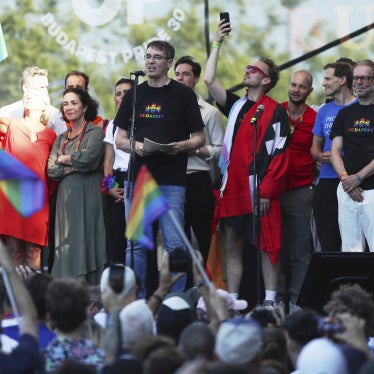As a parent it was hard to listen to. Mette Bentow described how a joyous occasion for her 12-year-old daughter turned into a nightmare, when the Copenhagen synagogue where she was celebrating her Bat Mitzvah was attacked by a gunman. Mette’s daughter and her siblings survived the attack in February, in which a volunteer guard died, but they are deeply traumatized, their mother said, scared to openly express their Jewish identity in the country of their birth.
Mette was speaking at the first-ever human rights colloquium organized by the European Commission. The subject? How to combat what no reasonable person can deny are serious problems in Europe today: anti-Semitism and Islamophobia.
It’s a positive sign that the subject of hate crimes was given such prominence by the commission. But beyond words, though, how can the cancer of hate crimes be tackled?
We don’t need a conference to know the failures in Europe’s response to hate crimes against Jews, Muslims, and other minorities. Civil society groups have been reporting on them for years. Nor do we need to reinvent the wheel when it comes to solutions. Ahead of the meeting, Human Rights Watch joined a group of nongovernmental organizations led by the European Network against Racism to set out key recommendations for action by the European Union institutions and member states.
A key ask is to do a much better job of quantifying the scale of the problem. As a new report on anti-Semitic attacks illustrates, many EU countries do not collect good – or in some cases any – data on hate crimes broken down by ethnicity, religion, or other category. Measuring the scale of the problem is crucial to ensuring an effective response by police and the courts.
The conference also heard about the experience of Zaynab Ouahabi, who was twice attacked and abused in her home country Sweden simply for wearing a headscarf. Because police did not properly investigate the first attack, when Zaynab was attacked for a second time, she did not report the incident.
This failure to bring to justice people who commit racist and xenophobic attacks is a serious problem, as Human Rights Watch has documented in Italy, Greece, and elsewhere. Europe’s Justice Commissioner Vera Jourova noted at the meeting that 18 of 28 member states are failing to implement EU law requiring an effective response to hate crimes. That is a shocking statistic.
In a year that began with a shooting in a Kosher supermarket in Paris, and in which some EU leaders now talk openly of not wanting to accept Muslim refugees, it’s high time to take seriously hatred against Jews and Muslims in Europe – and the violence and discrimination it can lead to. Doing so requires more than fine words however. It will take action both by European governments, and across our societies, too.









